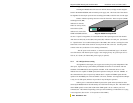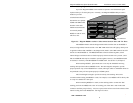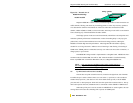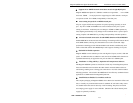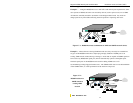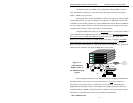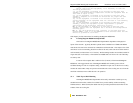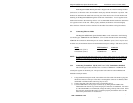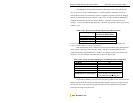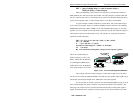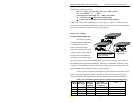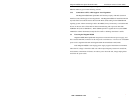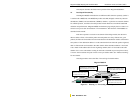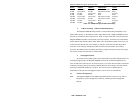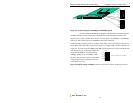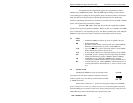
Magnum DS880 Dual-Speed Stackable Hubs Installation and User Guide (05/01)
15
www GarrettCom com
..
3.2.2 100Mbps Collision Domain Diameter, Cable Distances and PDV Calculations
The 100Mbps Collision Domain Diameter is the length of the longest path between
any two devices in a single collision domain. A collision domain is defined as a cluster of
network devices which are connected by means of a repeater or repeaters such that no bridging
devices are present between any two devices in the cluster. In order to install an IEEE 802.3u
compliant Fast Ethernet network, the collision domain . . regardless of the actual network
topology . . must be less than 512 BT (Bit Times). Bit Times are related to media type as shown
in Table 3.2.2a.
Table 3.2.2a: Worst case round-trip delay for Fast Ethernet media*
Media Type Round-trip delay in
Bit Time per Meter (BT/m)
Fiber Optic 1.000
Shielded TP cable 1.112
Category 5 Cable 1.112
Category 3, 4 Cable 1.140
*Worst case delays taken from IEEE Std 802.3u-1995, actual delays may be less for a particular cable.
Contact your cable supplier for exact cable specifications.
Each Fast Ethernet device component also has an associated BT delay which depends
on the physical signaling system employed. Table 3.2.2b shows each Fast Ethernet device
component and the associated BT delay. A “DTE” is an end node, such as a user station. Note
that there is only one DTE pair associated with any device-to-device path.
Table 3.2.2b: Worst case round-trip delay for Fast Ethernet device components*
Component Round-trip delay in Bit Times (BT)
2 TX DTEs 100
2 FX DTEs 100
1 FX and 1 TX DTE 100
1 T4 and 1 TX or FX DTE 127
Class I Repeater 140
Class II Repeater with any
combination of TX and FX ports
92 **
**Note, the delay is only 80 Bit Times for
the DS880, front-port-to-front-port.
*Worst case delays taken from IEEE Std 802.3u -1995.
To determine whether a prospective network topology adheres to the collision domain
diameter specification, the following formula should be applied to the worst case path through
the network. The worst case path is the path between the two Fast Ethernet devices (DTEs)
which have the longest round-trip time.



